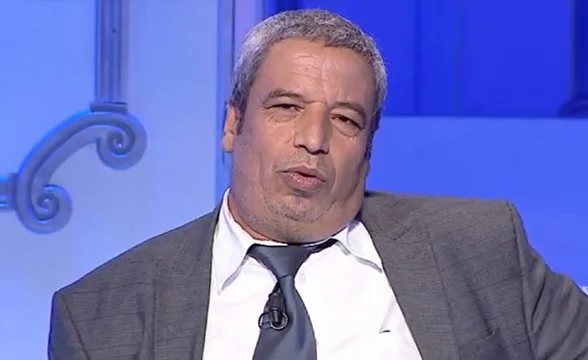The Criminal Chamber specializing in terrorism cases at the Tunis Court of First Instance sentenced Ali Lafi, a former advisor to the Minister of Religious Affairs, to eight years in prison on Tuesday, May 13, 2025, in a case described by the authorities as a “national security case.”
The court also issued another three-year prison sentence against a university professor who previously collaborated with a research center, in connection with the same case.
Background: From smuggling attempt to terrorism charges
The case dates back to March 2023, when Ali Lafi was arrested on charges related to his participation in an alleged attempt to smuggle former Minister of Agriculture Mohamed Ben Salem out of the country, and to his possession of security documents and files that are allegedly classified and related to “national security” and “national defense secrets.”
The two defendants were referred to the Criminal Chamber specializing in terrorism on charges related to “providing documents to a terrorist organization or alliance” and “conducting communications with foreign elements with the intent of harming the interests of the Tunisian state.”
Expanding the Definition of Terrorism to Criminalize Political Opposition:
The Freedom for Tunisia Observatory believes this case exemplifies the use of terrorism and national security charges to settle scores with political opponents or influential figures in the public sphere.
The Observatory notes the danger of the judicial trend toward criminalizing the possession of documents or information when found in the possession of members of the opposition, automatically characterizing them as a threat to national security, even in the absence of any evidence of violent intent or involvement in terrorist acts.
The Observatory believes that the current government is adopting a policy of expanding the definition of terrorist crimes to include any act that could be used to expose violations or criticize the authorities, as occurred in the case of Lafi, where his possession of documents was classified as a threat to the state, even though they contained no indications of criminal activity.
The Freedom for Tunisia Observatory condemns the verdict against Ali Lafi, considering it an extension of a politicized judicial process targeting critical voices and opposition activists under the guise of serious security charges, without providing sufficient evidence of the commission of acts that actually fall within international standards for terrorist crimes.
The Observatory calls for:
- Reclassification of the case based on its true nature, away from the use of the anti-terrorism law.
- Publicizing the facts and evidence to demonstrate the validity of the verdict and the credibility of the charges.
- Ending the policy of criminalizing documents and information when they are in the possession of opposition figures.
- Ensuring the independence of the judiciary from the executive branch in cases of a political nature.
The Observatory emphasizes that the misapplication of the anti-terrorism law makes it devoid of meaning and undermines public confidence in justice. It also reflects a dangerous shift toward a state that treats political opponents as security enemies.





